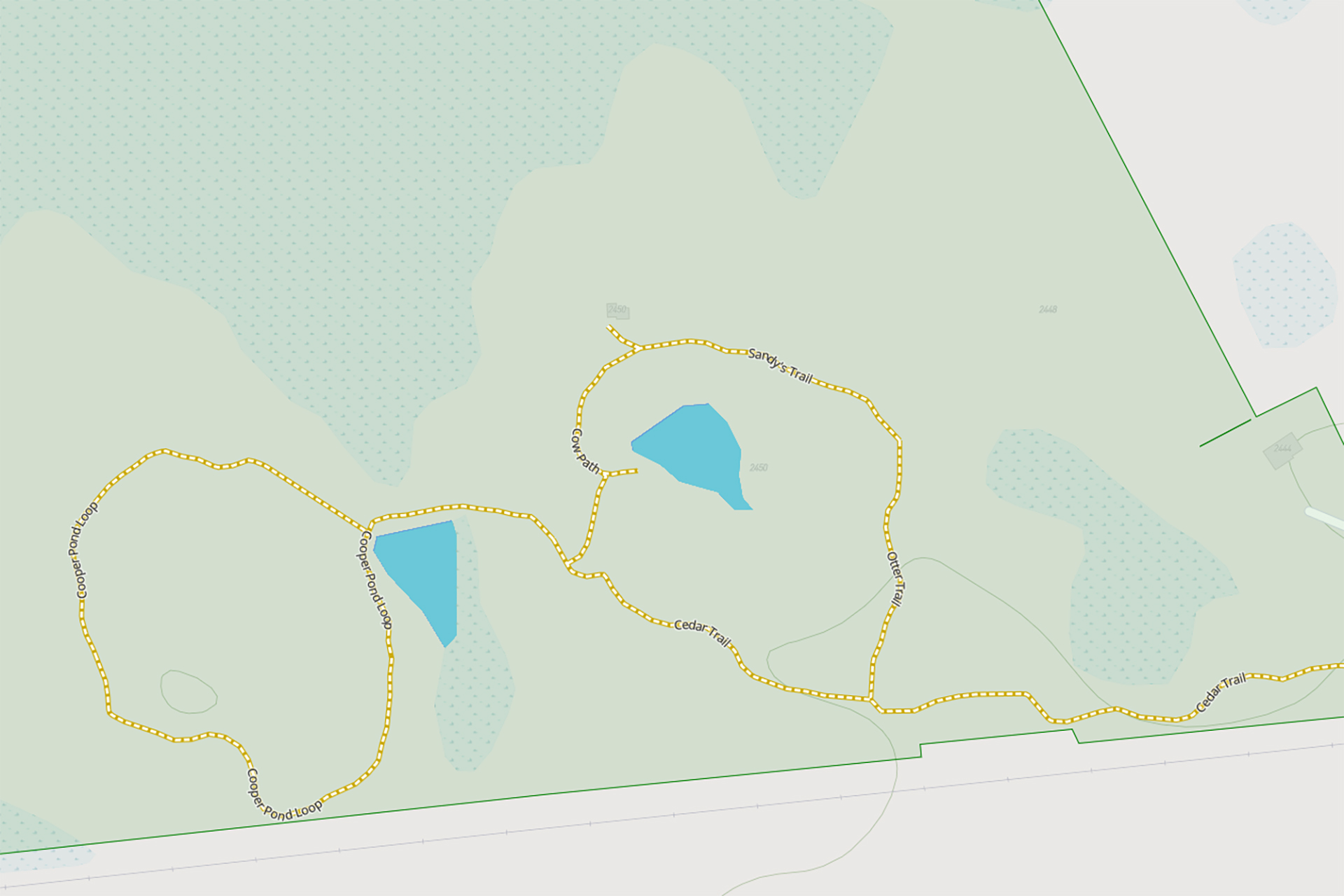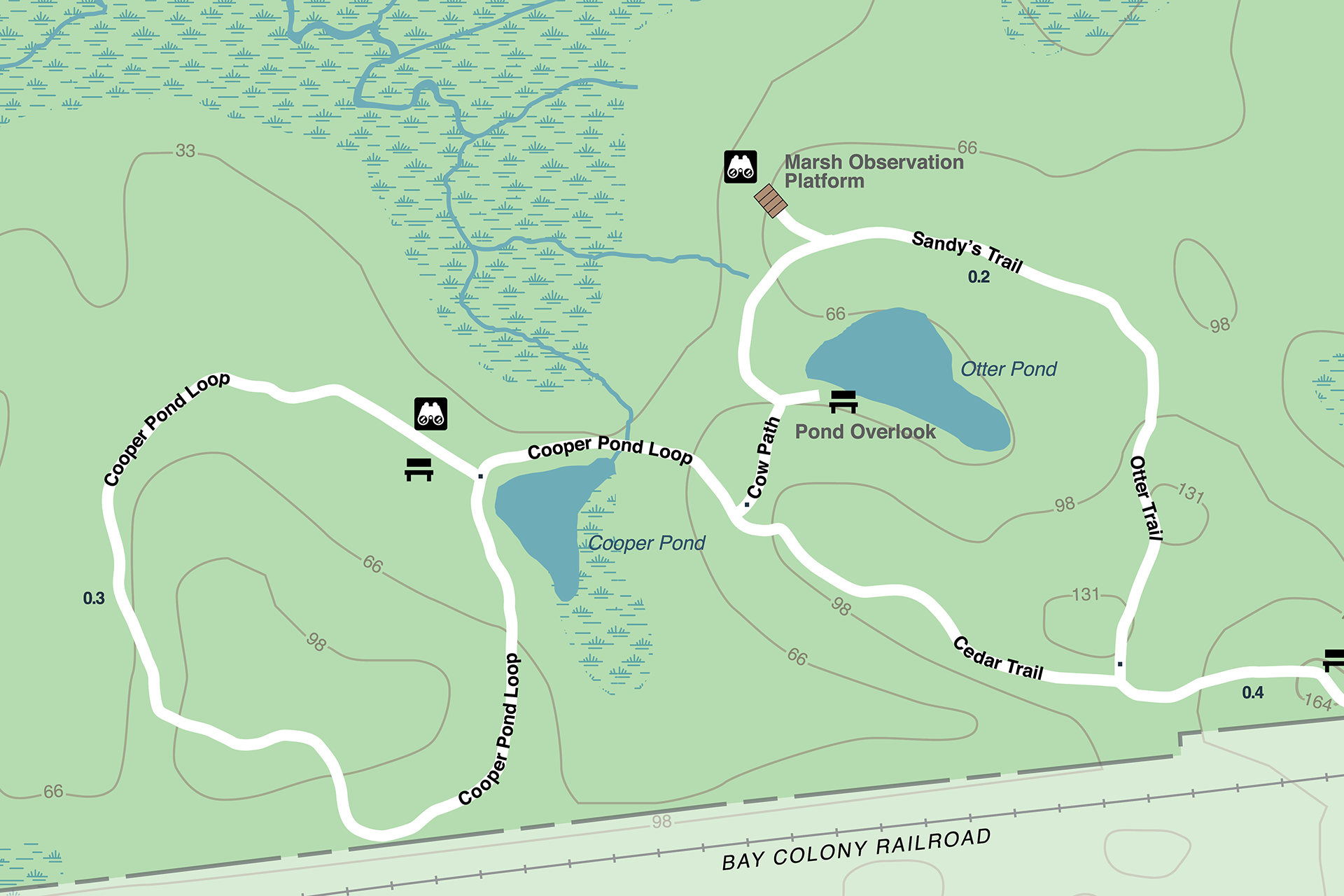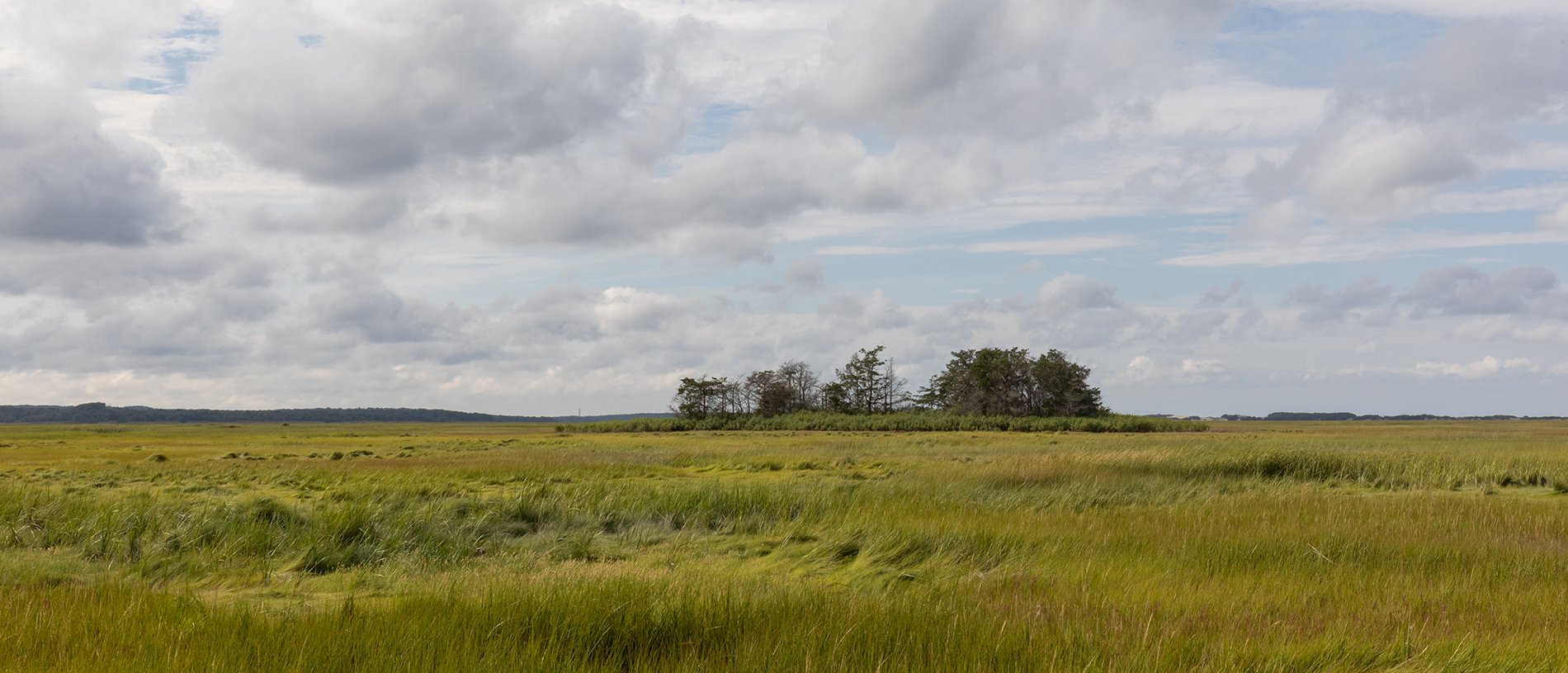Barnstable Great Marsh Wildlife Sanctuary
Trails at Barnstable Great Marsh
Explore 1.5 miles of trails at Barnstable Great Marsh Wildlife Sanctuary. There are two ponds, shady oak woodlands, and a coastal overlook with spectacular views of the Barnstable Harbor and Sandy Neck Barrier Beach.

Digital Trail Map
Use your smartphone to navigate the sanctuary. View the map

Download the Trail Map
Trail descriptions
Cedar Trail
From the parking area, walk west through an early successional woodland mix of cedars, pines, and oaks. Old rock walls mark former old pasture and property lines.
Otter Trail
The Otter Trail, so named for the presence of otters in and around the sanctuaries water bodies, is a short connector trail between Cedar Trail and Sandy’s Trail. Otters are most likely to be spotted in February and March, when individuals pair up and search for den sites. Look for them in Otter Pond and along the salt marsh creeks.
Sandy’s Trail
Sandy’s Trail continues through the woodland; Otter Pond can be seen to the left. At a clearing is an Observation platform. Here a westerly view of the marsh can be seen through a break in the vegetation. The straight-line ditches represent some of the man-made changes to the marsh that influence its integrity, especially in the face of sea level rise.
Cow Path
From the Observation platform, continue a short distance on Cow Path to the Pond Overlook Trail. Enjoy the peace of Otter Pond—you may see a Green Heron.
Cooper Pond Loop
This trail turns west from the Cow Path. As you go down a small slope, Cooper Pond will be on the left. A small footbridge crosses the stream outlet for this spring-fed pond. Farther ahead is another view of the Marsh. The trail continues through secondary woodlands, coming back to Cooper Pond. Note the variety of lichens and mosses as well as the boulders left behind by the last glacier.
Trail Safety
Please stay on the trails for your safety, and the safety of wildlife. Poison ivy and ticks are common in Massachusetts, so be sure to wear proper footwear, learn how to identify each, and be on the lookout. Also bring plenty of water, especially during the summer.



